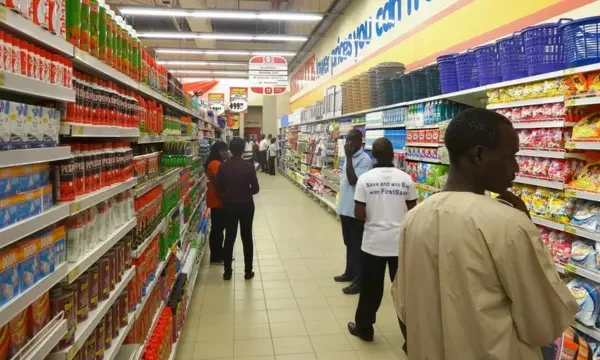Ghana Consumer Pulse Report: Smarter Spending, and Implications for Brands

Ghanaian households are reporting improved finances, yet they’re not spending freely. More than half say their situation is better, but most are cutting costs, avoiding debt, and building savings. This disciplined mindset—alongside easing inflation, moderate GDP growth, and rising digital adoption—signals an opportunity for brands and policymakers to align with a new era of value-driven consumption and household entrepreneurship.
Our recently published Consumer Pulse Study report for Ghana shows that 54 per cent of households say their financial situation has improved over the past six months, up from just 15 per cent in August 2024. Yet 64 per cent of respondents are actively reducing household expenses, and 57 per cent avoid taking on new debt, reflecting a durable shift toward cautious spending. Nearly half of consumers now save for a rainy day, and 46 per cent set clear financial goals to guide their budgets. Meanwhile, 31 per cent have added side hustles to boost their income, pointing to a surge in household-level entrepreneurship.
On the macro front, annual consumer inflation in Ghana eased to 22.4 per cent in March 2025—the lowest in five months—down from 23.1 per cent in February. The central bank’s recent 100 basis-point rate hike to 28 per cent underscores ongoing efforts to tame price pressures. Despite high inflation, the IMF projects real GDP growth of 4.0 per cent for 2025, signalling moderate economic expansion amid fiscal adjustments. Unemployment remains low by regional standards, with a projected rate of 4.0 per cent by the end of 2024.
Digital adoption is reshaping consumer resilience. In January 2025, Ghana had 24.06 million internet users—about 69.8 per cent of the population—and 7.95 million active social-media identities, up 7.4 per cent year-on-year. Mobile money continues to boom: February 2025 saw 698 million transactions worth GHC 316.23 billion, illustrating how digital finance underpins both daily spending and side-hustle earnings.
For brands, the path forward lies in offering clear value and supporting emerging household entrepreneurs. Flexible pack sizes, loyalty rewards, and entry-level price points will resonate with budget-focused consumers. Embedding financial-wellness tools, like in-app budgeting features or savings challenges, can deepen engagement and build trust. Policymakers should seize this moment to expand digital savings platforms and microcredit with built-in financial education, turning disciplined consumers into more formally included participants.
Understanding the smarter, hope-tinged hustle of Ghanaian households is critical. By aligning products, services, and policy with this disciplined consumer mindset, businesses and governments can foster sustainable growth and resilience in Ghana’s evolving economy.
Ready to dive deeper?
Download the full Consumer Pulse Study – Ghana report via the link.
Ready to invent the future?
Our teams possess extensive in-market experience that drives measurable growth for brands. Please reach out to us to learn more.
